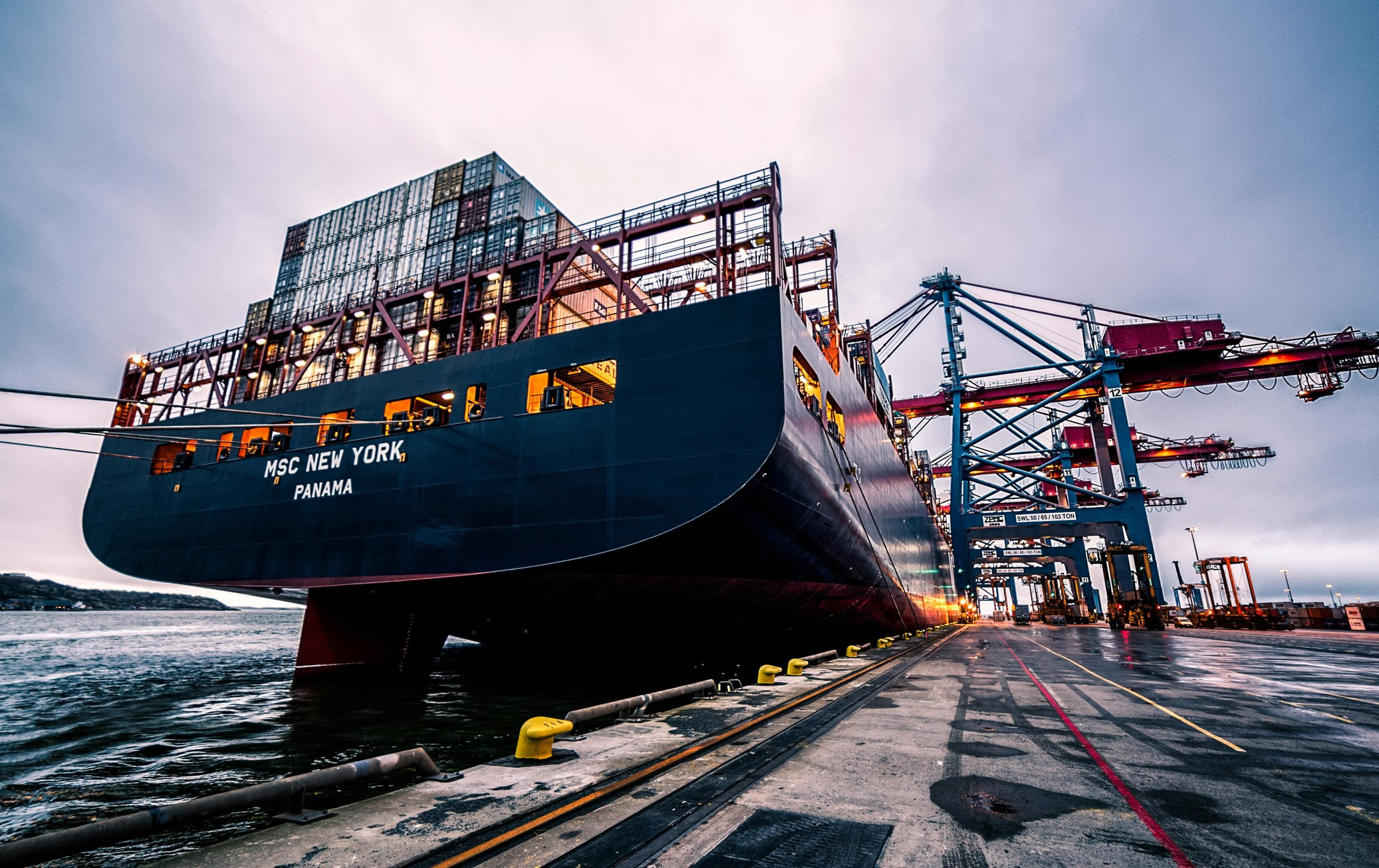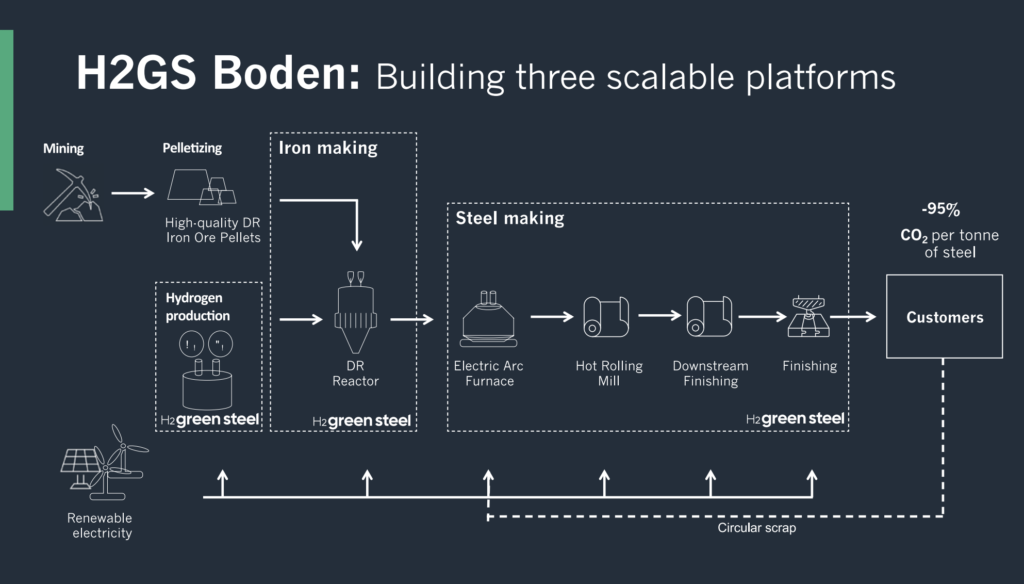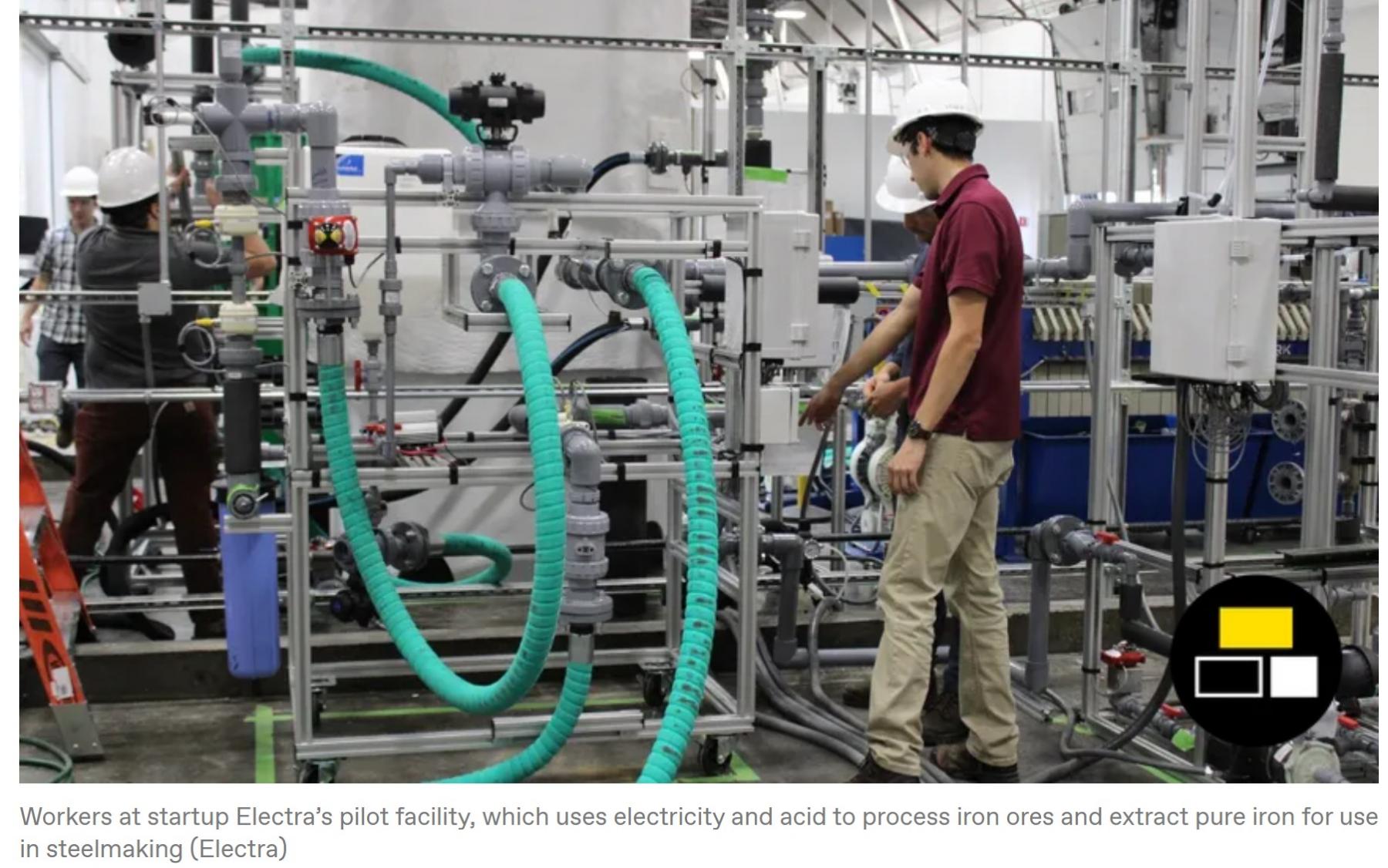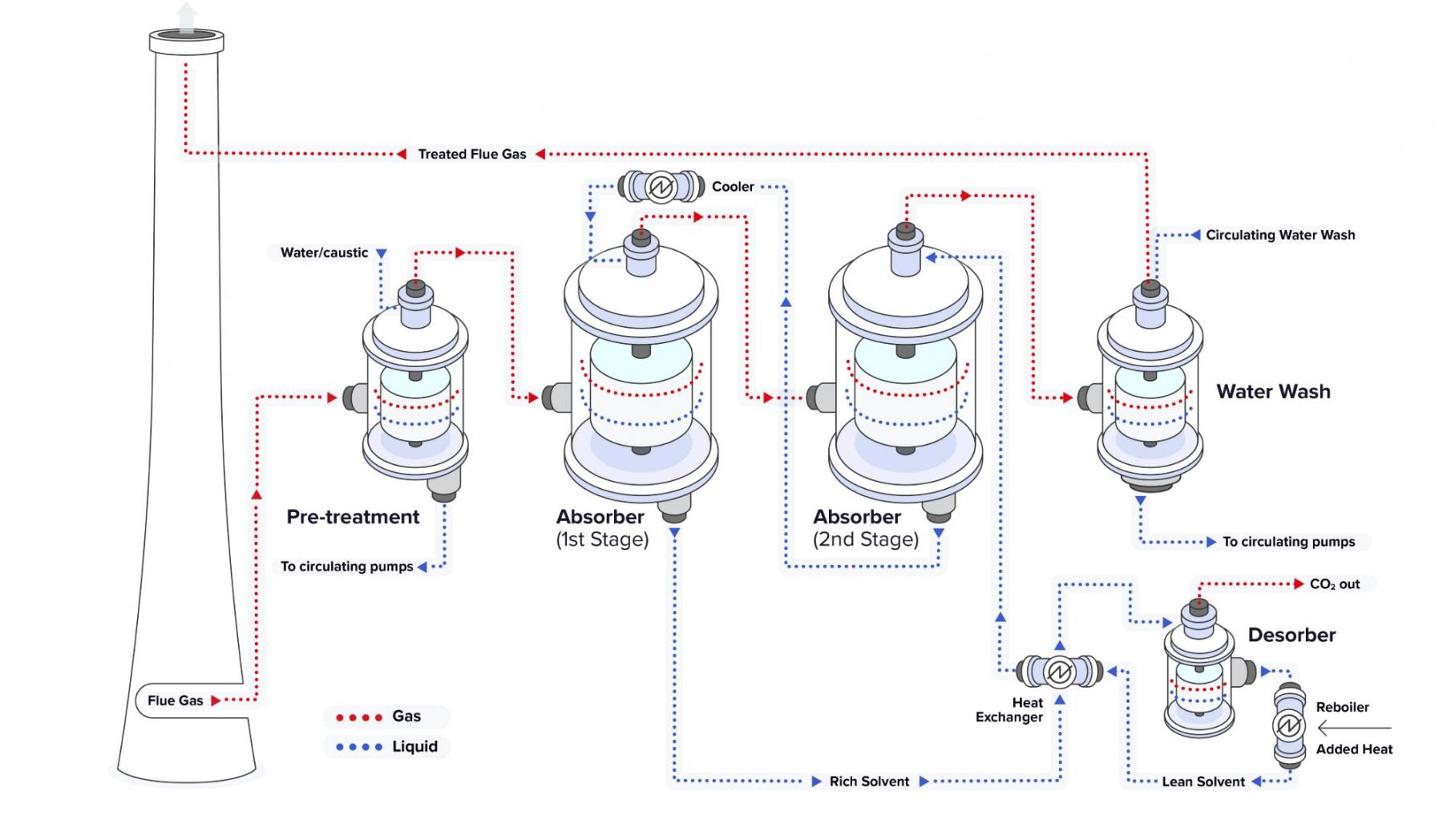
Cover photo by Albin Berlin
The steel industry represents a massive $1.5 trillion market characterized by labor-intensive processes and high operational costs.
New market dynamics, operational inefficiencies, and regulatory pressures like carbon credits and border adjustments are creating opportunities for innovation within the sector.
The drive for innovation extends beyond traditional industry players.
This value chain transformation, from production to consumption, has the potential to revolutionize multiple sectors including glass, cement, energy, automotive, mining, and beyond.
Strategic partnerships are crucial to stay relevant amid market evolution. Startups are key catalysts in accelerating these collaborative opportunities.
We've analyzed how various companies are partnering with innovative startups to develop unconventional solutions.

H2 Green Steel Story – the Quest for Earth’s Sustainable Future
H2 Green Steel - is spearheading steel industry decarbonization through green hydrogen technology. Established in 2020, they utilize costly green hydrogen processes for steel production. While H2 Green Steel commands a 25-30% premium on their steel prices, their positioning becomes increasingly advantageous as carbon taxation progressively intensifies in developed markets between 2026-2030.
Recognizing this future potential, Porsche, Scania and others have already secured pre-purchase agreements from their Boden facility.(Porsche plans to use CO2-reduced steel from H2 Green Steel in sports cars from 2026) (KIRCHHOFF Automotive and H2 Green Steel in €130 million deal for supply near zero emissions steel) (Scania places first green steel order in further step towards decarbonised supply chain)
Boston Metal
As financial viability improves, innovative startups like Boston Metal are gaining traction in the industry. Their MOE technology enables broad raw material sourcing by converting low and medium-grade iron ore dust directly into high-purity molten iron. Industry leaders ArcelorMittal and POSCO have invested in Boston Metal's low-carbon steel production technology. Their electrolysis solution transforms mining waste into valuable recovered metals, effectively converting environmental liabilities into economic assets. (ArcelorMittal invests $36 million in steel decarbonisation disruptor Boston Metal)

Electra
Electra, founded in 2021, pioneers efficient mining processes through renewable energy-powered electrolysis solutions for low-grade iron ores. Through ElectraSteel, they collaborate with major steel manufacturers to achieve zero-carbon steel production. The startup has secured a strategic partnership role in Nucor's zero-carbon steel production roadmap. Backed by prominent investors including Bill Gates, Breakthrough Energy Ventures, Amazon, Temasek, and S2G Ventures, Electra is currently developing pilot production facilities in Colorado to serve the steel industry. (Electra Launches Pilot Plant to Advance Commercialization of Sustainable Clean Iron Production)

Carbon Clean Solutions
Carbon Clean Solutions specializes in carbon capture technology innovation. The startup recently achieved a milestone by partnering with Tata Steel to design and launch India's first blast furnace carbon capture facility, which can capture 5 tons of CO2 daily. Their skid-mounted modular system captures CO2 from blast furnace emissions, processing it for various applications within Tata Steel's facilities. (Carbon Clean provides India's first blast furnace carbon capture plant)

GravitHy
GravitHy, founded in 2022, pioneers hydrogen-based green iron and steel production. Though still in its early phases, the startup has garnered significant attention from energy and steel industry leaders. With support from companies like Engie and EIT InnoEnergy, they're advancing the transition to low-carbon steel production. The startup secured a €2.2 billion investment from a consortium including EIT InnoEnergy, Engie New Ventures, FORVIA, GROUPE IDEC, Plug, and Primetals Technologies to build France's first green iron and steel facility, scheduled to begin operations in 2027. (GravitHy, the first carbon-free iron and steel production plant)
 Startups are driving innovation throughout the industry's value chain, not just in production processes.
Startups are driving innovation throughout the industry's value chain, not just in production processes.
SteelTrace, provides tracking services for steel throughout the supply chain, while Formetrix supplies special steel alloys for industrial component production. SteelTrace corporate clients include Total E&P Netherland and Inox Tech S.p.A.
Startups like S1Seven offer blockchain solutions for steel producers to conduct their operations with transparent supply chain records, ensuring necessary transparency for quality certifications and accreditations. Corporate clients include BASF, Thyssenkrupp and AMAG.
The solutions provided by startups are not limited to new technologies. Formerly founded in 2016 under the name Schrott24 with a B2C focus, transformed into Metaloop in 2022 with a B2B focus, Metaloop offers a comprehensive value proposition including live matching, logistics support, trade finance, and risk management services in the global metal scrap market.
Wayland, Addiguru, Makerverse, among others, have developed additive manufacturing services that offer rapid spare parts and prototyping capabilities for emerging markets like space technology, electric vehicles, and energy storage.
Startups like Sortera and Machina Labs accelerate industry R&D efforts with artificial intelligence.

Companies making strategic investments prefer either to develop new solutions with startups or, like other companies, to become financial investors in created value with a follower strategy.
Industry companies like Severstal and ArcelorMittal are trying different approaches to develop the startups they will invest in. (Severstal launches Steeltech Accelerator with global venture alliance) & (ArcelorMittal launches XCarb™ Innovation Fund Accelerator Programme for breakthrough climate tech start-ups in India)
A key finding is that innovation in the market extends beyond traditional industry players. Energy, automotive, mining, and technology companies are now securing crucial positions across the value chain.
We have given examples to illustrate how industry transformation is both multifaceted and multi-stakeholder-driven.
Startups represent one of these key stakeholder groups. Companies can explore various approaches to engage and collaborate with startups.